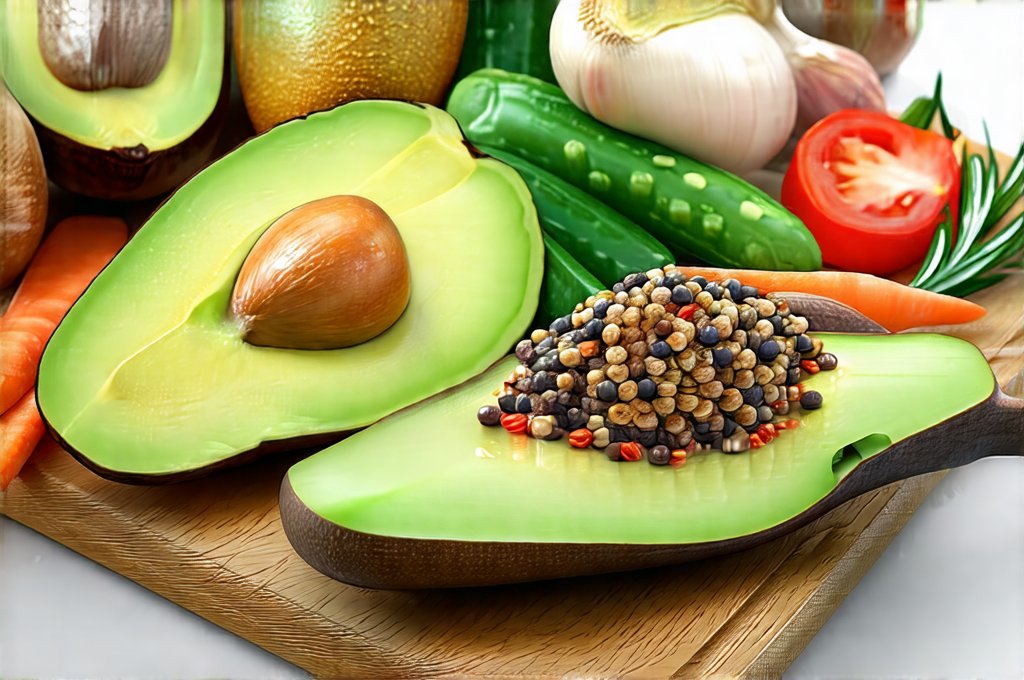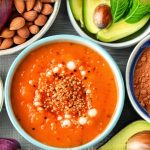Many people experience digestive discomfort at some point – bloating, gas, heartburn, constipation, or even more severe issues like irritable bowel syndrome (IBS). Often, this isn’t due to an underlying disease, but rather the foods we consume and how well our bodies process them. While cutting out all potentially problematic foods might seem appealing, it can lead to nutrient deficiencies and a restricted diet. The key lies in identifying foods that are both incredibly nourishing and gentle on the digestive system, allowing you to thrive while minimizing discomfort. This means looking beyond simply avoiding trigger foods and actively incorporating options that support healthy digestion from the start.
The challenge is that “healthy” doesn’t always equate to “easily digestible.” Many nutrient-dense foods – like cruciferous vegetables or beans – can be difficult for some people to process, leading to bloating or gas. This article explores a range of food choices that naturally lend themselves to smoother digestion while still providing substantial nutritional benefits. It’s about finding the sweet spot between optimal health and comfortable well-being, focusing on foods prepared in ways that maximize digestibility and minimize stress on your system. We’ll look at specific options and explore preparation methods that can make a significant difference in how you feel after eating. You might also want to learn more about foods that relax the lower esophageal sphincter, if heartburn is a concern.
Gentle Proteins & Their Benefits
Protein is essential for countless bodily functions – from building and repairing tissues to supporting immune health. However, many protein sources can be challenging to digest, particularly red meat or heavily processed alternatives. Choosing lean proteins prepared with gentle cooking methods can dramatically improve digestibility. Fish, especially fatty fish like salmon, mackerel, and sardines, are excellent options. They’re rich in omega-3 fatty acids which have anti-inflammatory properties that can benefit gut health, alongside high-quality protein. Poultry – particularly chicken or turkey breast – is also well-tolerated by many. When selecting poultry, opting for organic and pasture-raised options can further improve quality and digestibility.
Beyond the type of protein, preparation matters immensely. Grilling, frying, or even baking at very high temperatures can make proteins tougher to break down. Instead, consider steaming, poaching, slow cooking, or gentle sautéing. These methods preserve the delicate structure of the protein, making it easier for digestive enzymes to access and process. Similarly, marinating meat with tenderizing agents like lemon juice or pineapple (containing bromelain) can help break down proteins before consumption. Finally, chewing your food thoroughly is a simple yet powerful step often overlooked – it’s the first stage of digestion! If you struggle with foods that cause gas and bloating, paying attention to preparation methods can be especially helpful.
Plant-based protein sources also offer gentle options. Tofu and tempeh, made from soybeans, are generally easy to digest when prepared properly. Look for organic varieties and avoid frying them; steaming, baking, or adding them to soups and stews are ideal methods. Eggs, particularly if cooked softly (poached, scrambled), are another easily digestible protein source, providing essential amino acids and nutrients. Many individuals find hard-boiled eggs more difficult to digest, so experimenting with cooking method can be helpful.
Soothing Soups & Stews: A Digestive Powerhouse
Soups and stews aren’t just comforting; they’re incredibly beneficial for digestion. The slow cooking process breaks down ingredients, making them easier to absorb. Furthermore, the addition of liquids aids in the digestive process, preventing constipation and promoting regularity. Bone broth is particularly noteworthy – rich in collagen and amino acids, it can help heal and soothe the gut lining. Incorporating easily digestible vegetables like carrots, zucchini, and spinach into your soups adds further nutritional value without overwhelming your system.
- When making soup or stew:
- Use a base of bone broth for added nutrients and digestive support.
- Include soft, cooked vegetables that are easy to digest.
- Avoid ingredients known to cause gas or bloating (like excessive beans or cruciferous vegetables) if you’re sensitive.
The gentle nature of soups makes them ideal for individuals recovering from illness or experiencing digestive upset. They provide hydration and essential nutrients without putting undue stress on the system. Experiment with different herbs and spices – ginger, turmeric, and fennel are all known to aid digestion – to create flavorful and nourishing meals that support gut health. A creamy tomato soup, using well-cooked tomatoes (which become less acidic when cooked) and a touch of coconut milk for creaminess, can be both delicious and incredibly gentle on the stomach. If you’re looking to calm your stomach and reduce acidic irritation, consider incorporating these kinds of soups into your diet.
Fermented Foods: Gut Health Champions
Fermented foods are increasingly recognized for their profound impact on digestive health. They contain probiotics – beneficial bacteria that help populate the gut microbiome, improving digestion, nutrient absorption, and overall immune function. Yogurt (plain, unsweetened) is a classic example, but kefir, sauerkraut, kimchi, miso, and tempeh also offer significant benefits. The fermentation process pre-digests some of the food components, making them easier for your body to process.
However, it’s crucial to introduce fermented foods gradually. Starting with small amounts allows your gut microbiome to adjust without experiencing excessive gas or bloating. Individuals with histamine intolerance may need to be cautious with certain fermented foods and should consult a healthcare professional. Choosing traditionally fermented products (rather than those with added preservatives) is also important – the live cultures are what provide the digestive benefits. You can learn more about common foods that cause gas and bloating to help determine if fermentation helps or hinders your digestion.
Easily Digestible Carbohydrates: Fueling Your Body Gently
Carbohydrates often receive a bad rap, but they’re essential for energy production. The key is choosing carbohydrates that are easily digestible and avoiding highly processed options. Cooked oatmeal (especially steel-cut oats) is an excellent choice – the soluble fiber it contains promotes gut health and regular bowel movements. Sweet potatoes, when thoroughly cooked, are another gentle option, providing vitamins, minerals, and antioxidants. White rice, while lower in nutrients than brown rice, is often easier to digest for individuals with sensitive stomachs.
- Prioritize carbohydrates that have been:
- Cooked thoroughly – softening the fibers makes them easier to break down.
- Paired with healthy fats or proteins – this slows digestion and prevents blood sugar spikes.
- Avoid highly processed carbohydrates – like white bread, sugary cereals, and pastries.
Fruit can be a source of easily digestible carbs, but some fruits are gentler than others. Bananas (ripe), blueberries, and cooked applesauce are generally well-tolerated. Avoiding citrus fruits and high-fructose corn syrup can also help minimize digestive discomfort. Remember that individual tolerances vary, so paying attention to how your body reacts to different foods is essential. Ultimately, building a diet around whole, unprocessed foods – prepared with gentle cooking methods – will support both nutrient intake and comfortable digestion. If you find certain “healthy” foods trigger stomach acid, this approach can help identify the culprits. Don’t underestimate the impact of sleep and digestion either, as these are closely linked! Finally, be aware of everyday foods that inflame the lower esophageal sphincter and adjust your diet accordingly.


















